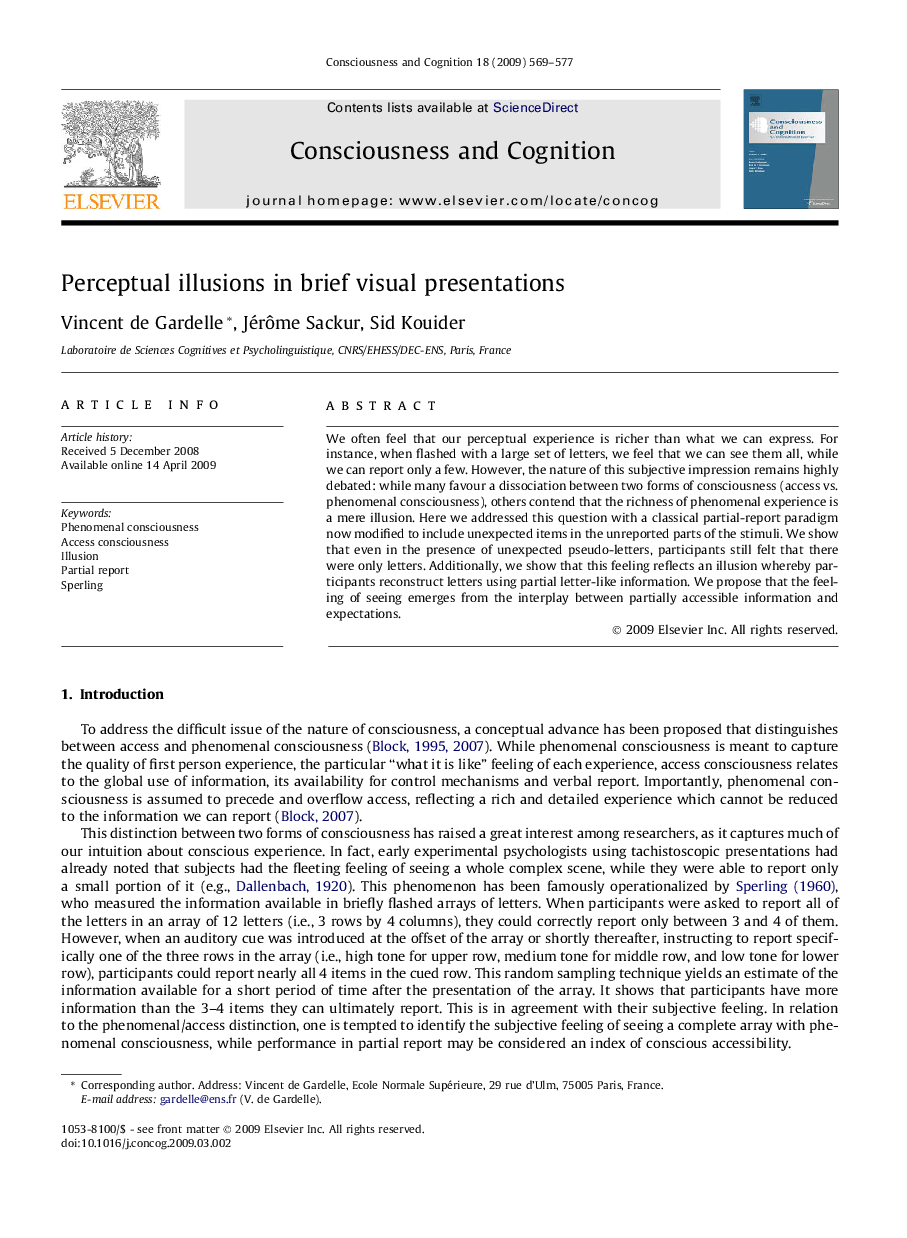| کد مقاله | کد نشریه | سال انتشار | مقاله انگلیسی | نسخه تمام متن |
|---|---|---|---|---|
| 927887 | 922281 | 2009 | 9 صفحه PDF | دانلود رایگان |

We often feel that our perceptual experience is richer than what we can express. For instance, when flashed with a large set of letters, we feel that we can see them all, while we can report only a few. However, the nature of this subjective impression remains highly debated: while many favour a dissociation between two forms of consciousness (access vs. phenomenal consciousness), others contend that the richness of phenomenal experience is a mere illusion. Here we addressed this question with a classical partial-report paradigm now modified to include unexpected items in the unreported parts of the stimuli. We show that even in the presence of unexpected pseudo-letters, participants still felt that there were only letters. Additionally, we show that this feeling reflects an illusion whereby participants reconstruct letters using partial letter-like information. We propose that the feeling of seeing emerges from the interplay between partially accessible information and expectations.
Journal: Consciousness and Cognition - Volume 18, Issue 3, September 2009, Pages 569–577